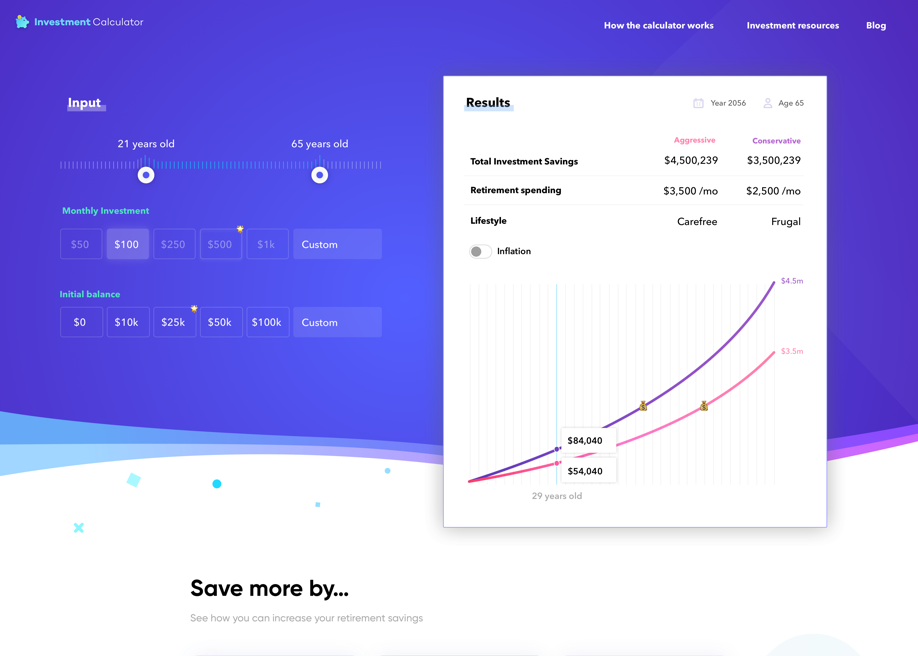Investment Calculator - Indorama Ventures - Questions

Compound Interest Calculator - FinancePlusInsurance

Investment Account Calculator
Excitement About Investment Calculator - Gilead Sciences
Bonds can be purchased for the short or long term. Short-term bond financiers want to buy a bond when its price is low and offer it when its rate has actually risen, rather than holding the bond to maturity. Bond costs tend to drop as interest rates rise, and they usually rise when interest rates fall.
A conservative method to bond investing is to hold them up until maturity. In this manner, interest payments appear, normally two times a year, and owners receive the stated value of the bond at maturity. By following a long-lasting bond-buying strategy, it is not a requirement to be too concerned about the impact of interest rates on a bond's price or market price.

One extremely unique kind of bond is the United States Treasury inflation-protected securities, referred to as POINTERS. TIPS offers an efficient method to handle the threat of inflation. They also provide a safe return guaranteed by the U.S. federal government. For Click Here For Additional Info , they are a preferred investment, although the return is reasonably low compared to other fixed-income financial investments.
The Main Principles Of Investment Calculators and Tools - Franklin Templeton
This is what makes them unique and identifies their behavior. Please visit our Inflation Calculator for more information about inflation or IDEAS. Stocks Equity or stocks are popular kinds of financial investments. While they are not fixed-interest financial investments, they are one of the most important types of investments for both institutional and private financiers.
It permits a partial owner of a public business to share in its profits, and investors receive funds in the type of dividends for as long as the shares are held (and the company pays dividends). The majority of stocks are traded on exchanges, and many investors purchase stocks with the intent of purchasing them at a low rate and offering them at a greater one (hopefully).
These funds are generally managed by a finance supervisor or company. The investor pays a little cost called a "load" for the opportunity of working with the supervisor or company. Another sort of stock fund is the exchange-traded fund (ETF), which tracks an index, sector, commodity, or other assets. An ETF fund can be bought or sold on a stock market the exact same way as a regular stock.
